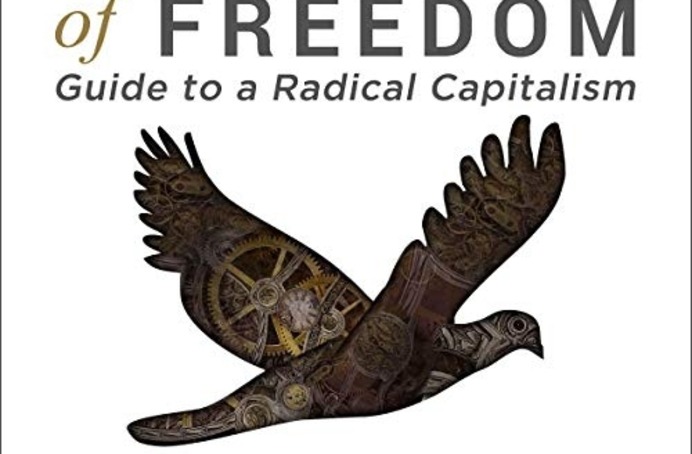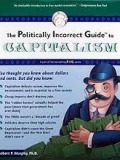Book

The Machinery of Freedom
This book argues for a society organized by voluntary cooperation under institutions of private property and exchange with little, ultimately no, government. It describes how the most fundamental functions of government might be replaced by private institutions, with services such as protecting individual rights and settling disputes provided by private firms in a competitive market. It goes on to use the tools of economic analysis to attempt to show how such institutions could be expected to work, what sort of legal rules they would generate, and under what circumstances they would or would not be stable. The approach is consequentialist. The claim is that such a society would produce more attractive outcomes, judged by widely shared values, than alternatives, including the current institutions of the U.S. and similar societies.The second edition contained four sections, this third edition adds two more. One explores some of the ideas already raised in greater depth, including discussions of decentralized law enforcement in past legal systems, of rights seen not as a moral or legal category but as a description of human behavior, of a possible threat to the stability of the system not considered in the previous editions, and of ways in which a stateless society might defend itself from aggressive states. The final section introduces a number of new topics, including unschooling, the misuse of externality arguments in contexts such as population or global warming, and the implications of public key encryption and related online technologies.
aboutLiberty Portal
Liberty Portal is your gateway for free markets and free thinking. We aggregate open-sourced content to promote and popularize important people and lessons within the liberty movement.
suggested
Richard Herrnstein and Charles Murray
The Bell Curve

The controversial book linking intelligence to class and race in modern society, and what public policy can do to mitigate socioeconomic differences in IQ, birth rate, crime, fertility, welfare, and poverty.
Read more
Robert Murphy
The Politically Incorrect Guide To Capitalism

Most commonly accepted economic "facts" are wrong Here's the unvarnished, politically incorrect truth. The liberal media and propagandists masquerading as educators have filled the world--and deformed public policy--with politically correct errors about capitalism and economics in general. In The Politically Incorrect Guide(tm) to Capitalism, myth-busting professor Robert P. Murphy, a scholar and frequent speaker at the Ludwig von Mises Institute, cuts through all their nonsense, shattering liberal myths and fashionable socialist cliches to set the record straight. Murphy starts with a basic explanation of what capitalism really is, and then dives fearlessly into hot topics like:
* Outsourcing (why it's good for Americans) and zoning restrictions (why they're not)
* Why central planning has never worked and never will
* How prices operate in a free market (and why socialist schemes like rent control always backfire)
* How labor unions actually hurt workers more than they help them
* Why increasing the minimum wage is always a bad idea
* Why the free market is the best guard against racism
* How capitalism will save the environment--and why Communist countries were the most polluted on earth
* Raising taxes: why it is never "responsible"
* Why no genuine advocate for the downtrodden could endorse the dehumanizing Welfare State
* The single biggest myth underlying the public's support for government regulation of business
* Antitrust suits: usually filed by firms that lose in free competition
* How tariffs and other restrictions "protect" privileged workers but make other Americans poorer
* The IMF and World Bank: why they don't help poor countries
* Plus: Are you a capitalist pig? Take the quiz and find out! Breezy, witty, but always clear, precise, and elegantly reasoned, The Politically Incorrect Guide(tm) to Capitalism is a solid and entertaining guide to free market economics. With his twelve-step plan for understanding the free market, Murphy shows why conservatives should resist attempts to socialize America and fight spiritedly for the free market.
Read more* Outsourcing (why it's good for Americans) and zoning restrictions (why they're not)
* Why central planning has never worked and never will
* How prices operate in a free market (and why socialist schemes like rent control always backfire)
* How labor unions actually hurt workers more than they help them
* Why increasing the minimum wage is always a bad idea
* Why the free market is the best guard against racism
* How capitalism will save the environment--and why Communist countries were the most polluted on earth
* Raising taxes: why it is never "responsible"
* Why no genuine advocate for the downtrodden could endorse the dehumanizing Welfare State
* The single biggest myth underlying the public's support for government regulation of business
* Antitrust suits: usually filed by firms that lose in free competition
* How tariffs and other restrictions "protect" privileged workers but make other Americans poorer
* The IMF and World Bank: why they don't help poor countries
* Plus: Are you a capitalist pig? Take the quiz and find out! Breezy, witty, but always clear, precise, and elegantly reasoned, The Politically Incorrect Guide(tm) to Capitalism is a solid and entertaining guide to free market economics. With his twelve-step plan for understanding the free market, Murphy shows why conservatives should resist attempts to socialize America and fight spiritedly for the free market.
Michal Malice
The White Pill

The Russian Revolution was as red as blood. The Bolsheviks promised that they were building a new society, a workers’ paradise that would change the nature of mankind itself. What they ended up constructing was the largest prison that the world had ever seen, a Union of Soviet Socialist Republics that spanned half the globe. It was a country where people's lives meant nothing, less than nothing—and they knew it. But no matter what atrocity that the Soviets committed—the secret police, the torture chambers, the show trials, the labor camps and the mass starvation—there was always someone in the West rushing to justify their bloodshed. For decades it seemed perfectly obvious that the USSR wasn’t going anywhere—until it vanished from the face of the earth, gradually and then suddenly. This is the story of the rise and fall of that evil empire, and why it is so important for the good to never give up hope. This is the white pill.
Read more


